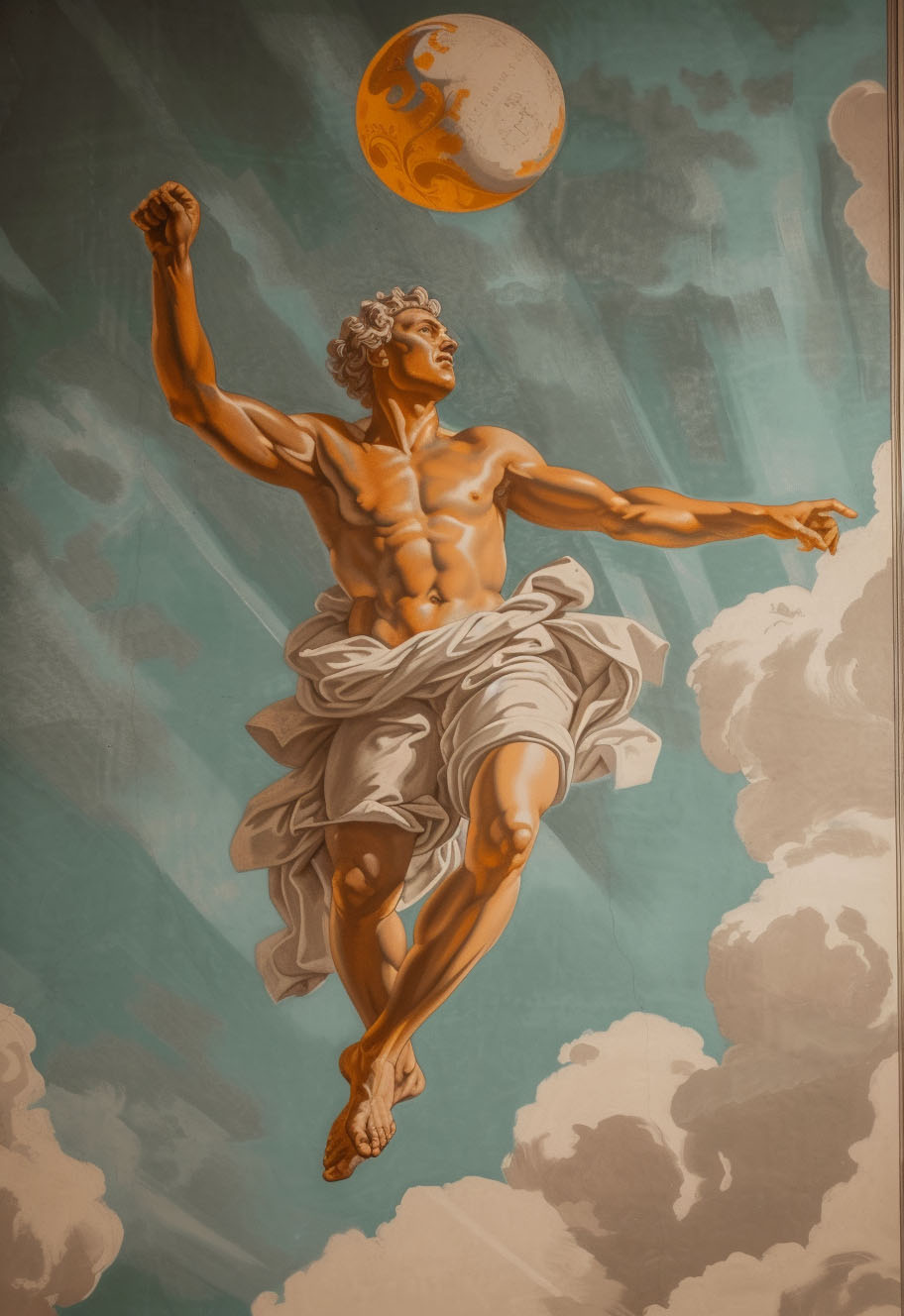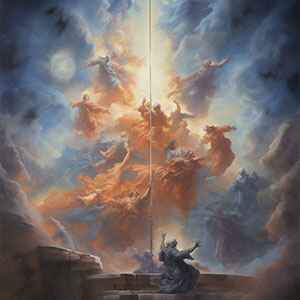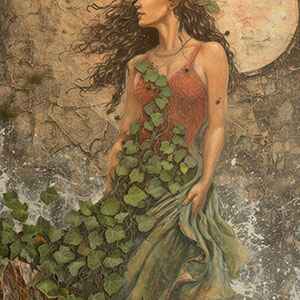
Primordial Origin: Uranus is considered one of the primordial deities born from Chaos, the initial state of the cosmos. He represents the sky and is one of the first entities to emerge in the early cosmogonic narrative.
Parentage and Siblings: Uranus is born from Chaos and is often depicted as the brother and consort of Gaea, the personification of Earth. Together, they give birth to various primordial beings, including the Titans, Cyclopes, and Hecatoncheires (Hundred-Handed Ones).
Father of the Titans: Uranus becomes the father of the Titans, who play a significant role in the subsequent generation of gods. The Titans include notable figures like Cronus, Rhea, Oceanus, and Tethys.
Fear of Offspring: Uranus, fearing the power of his offspring, particularly the Cyclopes and Hecatoncheires, imprisons them in the depths of the Earth (Tartarus). This act of confinement leads to conflict and resentment among the deities.
Castration by Cronus: In the most well-known myth involving Uranus, Cronus (one of his sons and later ruler of the Titans) castrates him with a sickle, thus separating Uranus from Gaea. This act leads to the separation of the sky from the Earth, signifying a pivotal moment in the cosmogonic cycle.
Blood and Birth of the Furies: As Uranus is castrated, drops of his blood fall onto Gaea, giving birth to the Furies (Erinyes or Eumenides), deities associated with vengeance and retribution.
Symbolism: Uranus symbolizes the sky, and his union with Gaea represents the fundamental connection between the sky and the Earth. The separation of Uranus and Gaea has metaphorical implications, representing the emergence of distinct realms and the establishment of order in the cosmos.
Influence on Later Generations: Uranus, through his descendants, influences the subsequent generations of gods, including the Olympian gods led by Zeus. The overthrow of Uranus by Cronus sets the stage for the eventual rise of Zeus and the Olympian order.
Cultural Significance: The myth of Uranus and his interactions with Gaea and their offspring is a foundational narrative in Greek cosmogony. It explores themes of generational conflict, the establishment of cosmic order, and the cyclical nature of power transitions.
Literary References: The story of Uranus is found in works such as Hesiod's "Theogony," where the poet provides a detailed account of the genealogy of the gods and the creation of the cosmos.
In summary, Uranus is a primordial deity representing the sky, and his interactions with Gaea and their offspring shape the early narrative of the cosmos. The castration of Uranus by Cronus is a key event that marks a transition in the cosmic order and sets the stage for the subsequent generations of gods.
Immediate Family
Quick Facts
- Uranus is considered one of the primordial deities born from Chaos.
- He is the brother and consort of Gaea.
- Uranus becomes the father of the Titans.
- He feared the power of his offspring, leading to their imprisonment in Tartarus.
- Cronus, one of his sons, castrates Uranus with a sickle.
- The blood of Uranus gives birth to the Furies.
- Uranus symbolizes the sky and influences the subsequent generations of gods.
- The myth of Uranus is foundational in Greek cosmogony.
- The story of Uranus is detailed in Hesiod's "Theogony."
Further Reading
Art &
Architecture
Ancient Greek art and architecture, with its harmonious proportions and timeless elegance, continue to inspire awe and admiration millennia later.
Discover
Greek Mythology & Mythical Characters
Greek mythology, a rich tapestry of gods, heroes, and mythical creatures, captivates the imagination with its tales of love, betrayal, and epic adventures that delve into the depths of the human psyche.
Discover
Ancient Greek History
Ancient Greek history, marked by remarkable achievements in democracy, philosophy, and warfare, shaped the foundation of Western civilization, leaving an indelible legacy of innovation and cultural influence that continues to resonate to this day.
Discover
Ancient Greek Olympics
The ancient Greek Olympics, held in Olympia every four years, celebrated athleticism, unity, and cultural pride, serving as a testament to the enduring spirit of competition and excellence that transcends time and borders.
Discover
Ancient Greek Wars
Ancient Greek wars, such as the Persian Wars and the Peloponnesian War, were pivotal conflicts that shaped the course of history, highlighting the struggle for power, independence, and the clash of civilizations in the ancient Mediterranean world.
Discover
Ancient Greek Culture and Society
Ancient Greek culture and society, characterized by its emphasis on art, philosophy, and civic engagement, fostered a vibrant intellectual and social landscape where innovation flourished, democracy thrived, and the pursuit of knowledge and excellence was celebrated as fundamental values of civilized life.
Discover

